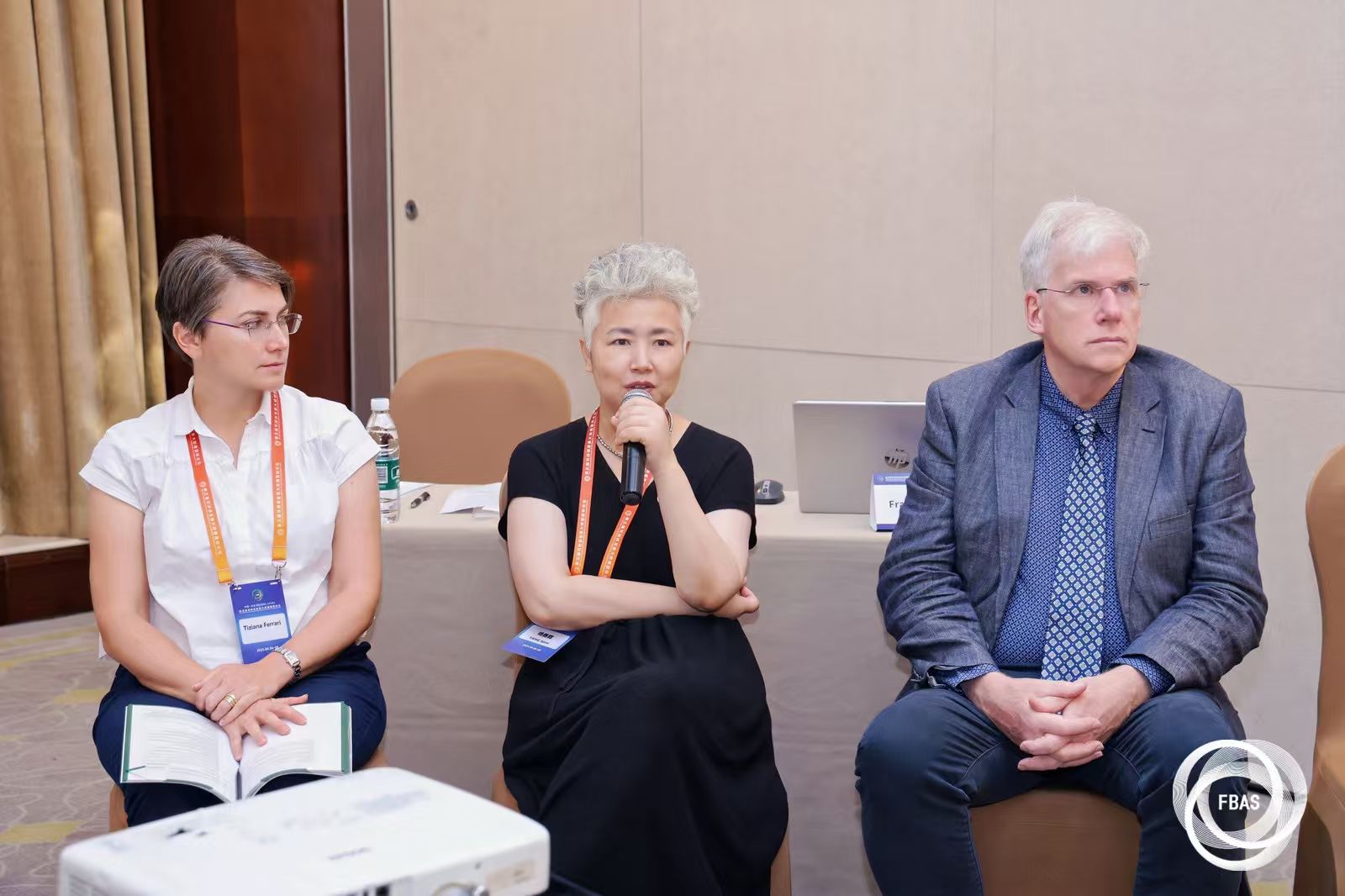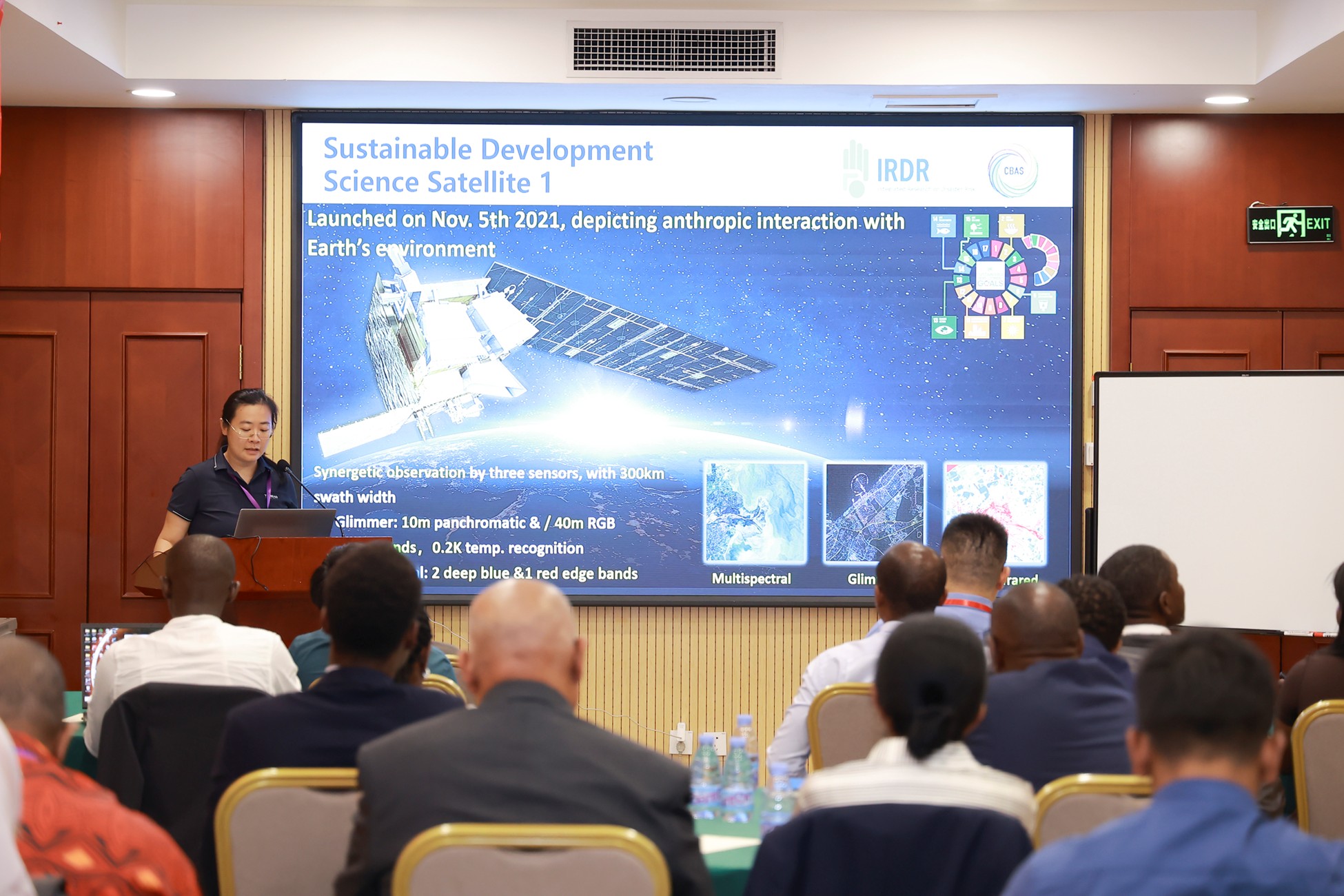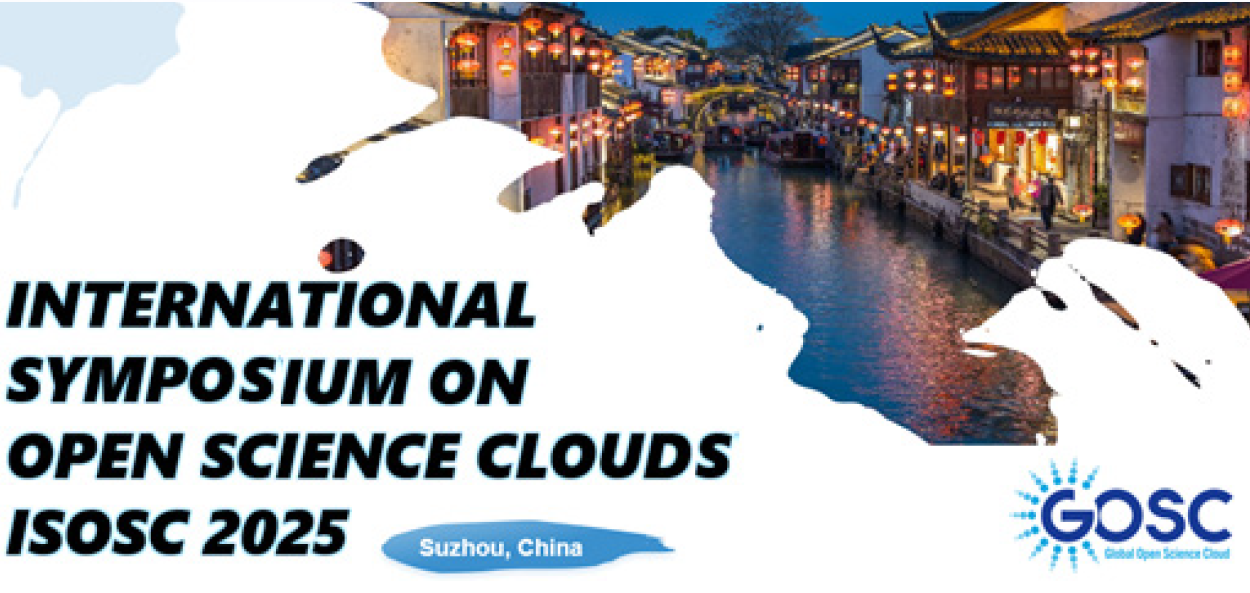The opening session of the Integrated Research on Disaster Risk 2021 Conference was held on June 8th physically and virtually and live online simultaneously.
The IRDR 2021 conference is themed “Advancing Risk Science for Development Safety: 10 Years of IRDR -- Building a new risk research agenda for 2030 and beyond". Its overall purpose is to reach a renewed consensus on the mission of STEI (Science, Technology, Engineering and Innovations) and put forward a novel proposal on the Global Research Agenda for disaster risk reduction and risk-informed development for 2030 and beyond. Under the emerging challenges on global risk reduction and given the impact of the COVID-19 pandemic, the conference is dedicated to support the implementation of global DRR and facilitate global cooperation to confront prospective global socio-environmental changes.
Prof. GUO Huadong, President of China National Committee for ISC, opened the session starting by introducing his deep relationship with IRDR. 10 years ago, he was serving as the Director-General of CEODE when ICSU, ISSC, UNISDR, and CAST approved CEODE as the host institute of IRDR-IPO.
Sir Peter GlUCKMAN, President-elect of ISC, delivered his opening remarks on behalf of the Co-Sponsor. He mentioned some of the most urgent issues currently faced by the global community, notably compound hazards and disasters, pandemic vaccine distributions, and socio-economic development barriers. He emphasized the importance of science and technology in strengthening nations' development and urgedfor more in-depth scientific researches to further support the classification and definition of disasters. He also delievered a positive note by demonstrating the close relationship between ISC and IRDR. As the Climate Change Action Plan is to be launched soon in 2022-2024, he believed more institutionalized and effective response systems are the key to help with decision-making to confront the challenges.
Ms. Mami MIZUTORI, Special Representative of UN Secretary-General on Disaster Risk Reduction, delivered her opening remarks on behalf of the Co-Sponsor. She celebrated the strong line-up of participants and the deep multi-stakeholder cooperation and coordination of the various institutions in the IRDR conference and the IRDR community. She said that, over time, IRDR has become an indispensable and effective resource that directly relates to the seven global goals of the Sendai Framework. IRDR directly reinforces the global cooperation platform, helping developing countries to gain access to new scientific and technological knowledge and innovation capabilities and to strenghthen their capacity building. This spirit of collaboration should not be overlooked.
Professor HUAI Jinpeng, Executive Vice President and Chief Executive Secretary of CAST, delivered opening remarks on behalf of CAST. He underlined China’s efforts and achievements in effective disaster response in the recent decades under President Xi's emphasis on disaster prevention, mitigation, and response. Professor Huai demonstrated that, given its continuous scientific innovations and diligent cooperation with international scientists, China clearly shows its commitment in furthering understandings of risks, strengthening international trusts, and promoting open science for a shared future.
Dr. Riyanti DJALANTE, Chair of IRDR Scientific Committee, delivered her opening remarks starting by an overall introduction of IRDR programme. She pointed out the complexity of full integration of the multi-disciplinary approaches in disaster risk research, while emphasized its significance and reiterated IRDR's purpose in the midst of such challenge. She recognized the IRDR community’s significant role in providing support and engaging young scientists and professionals to the integrated disaster risk reduction research. Lastly, she called for collective efforts from the science community and the public to join hands and build a peaceful, equitable, and sustainable world.
At the end of the session, the IRDR Compilation 2010-2020 was launched jointly by ISC, UNDRR, and CAST. HAN Qunli, Executive Director of IRDR-IPO, looked back to the progress of IRDR between 2010-2020. He pointed out that such integrated research programme has significant implications in both scientific research and innovation, which leaves inspiring influence in the fields of science and technology and future disaster risk research agenda.
Up to the opening session, the conference has already had 387 registered participants from 80 countries and regions. The opening session's live streaming available on Facebook and Twitter has reached over 800,000 views.
The conference will last for 3 days, with active participation and frequent interactions between scholars from different fields and professionals of multi-stakeholders.





